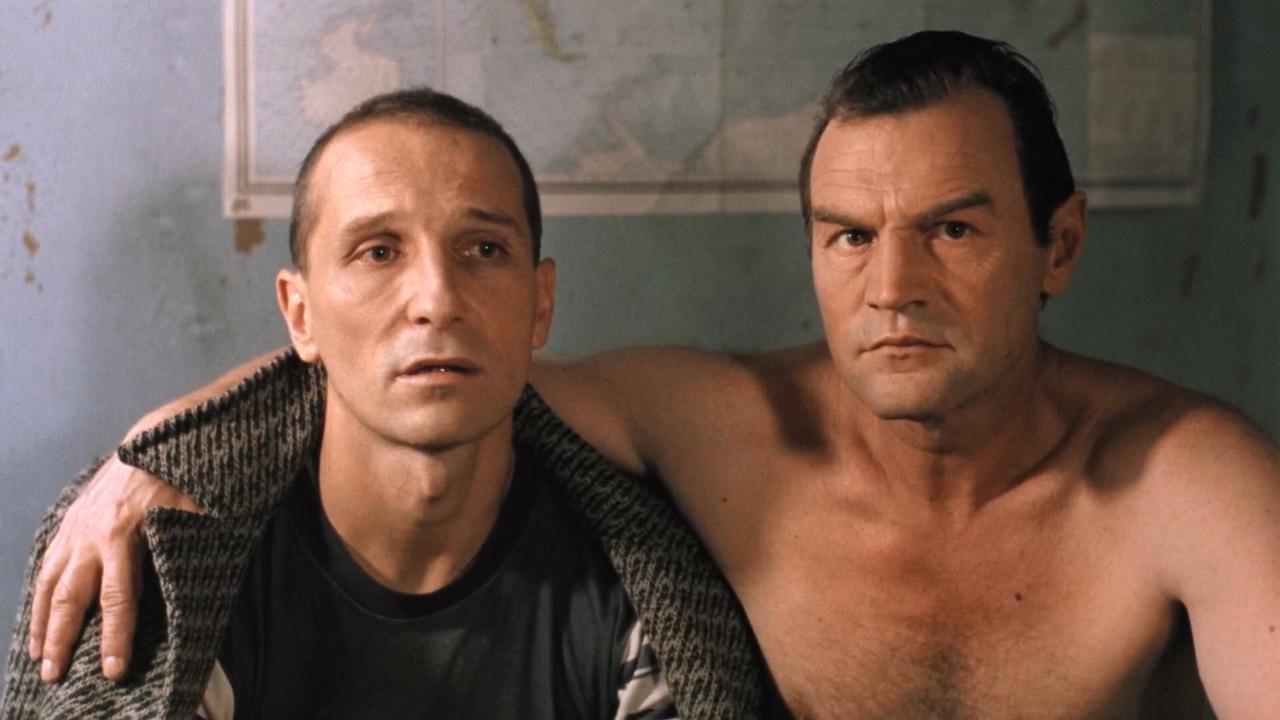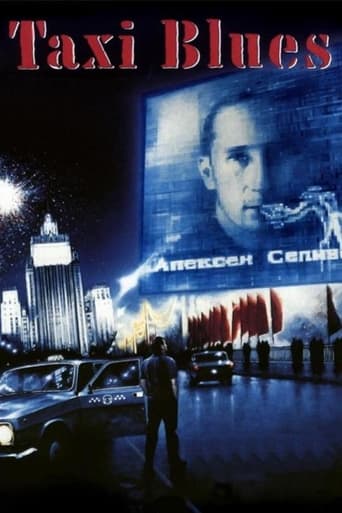

Taxi Blues tells of the antagonistic relationship between Shlykov and Lyosha, which begins when Lyosha fails to pay Shlykov the fare for his taxi ride. However, as the film continues they become friends of a sort. This changes when Lyosha finds fame with a famous American saxophone player and goes off to tour with him. When Lyosha comes back with no acknowledgment to Shlykov who has helped him, Shlykov is obviously hurt. The film ends with a car chase and subsequent crash and then gives an update on each of the main characters. This film was very interesting and bittersweet. There are many moments throughout the film where you can see the potential for a better friendship between Lyosha and Shlykov, but there is always something that happens which prevents this. The differences between Shlykov and Lyosha are immediately noticeable, as Shlykov is shown to be more a patriotic, stoic person while Lyosha is an alcoholic musician. These differences between them seem to illustrate the state people found themselves in during these uncertain times. Many people were disillusioned and uncertain of their political identity and you can definitely see this in Shlykov who struggles with Lyosha because he is a musician and more open to the West. The film also did an excellent job of showing Russian daily life during this time with the many scenes in Shlykov's apartment with the old man as his roommate. Taxi Blues is an insightful look into the mindset of many Russians during this time of political uncertainty, but is also entertaining in it delivery of that message.
... View MoreA post Perestroika film like "Taksi-Blyuz" must be viewed in the context of Russia after 1990s.It is a landmark film in the history of Russian cinema.It speaks about an independent Russian state which might be a little difficult for some non Russian people to understand.It must be mentioned that it is not all an American Taxi Driver.The core issues of this film are masculinity,music and patriotism but still our hero grapples with numerous emotional conflicts.In today's modern day Russia,I am sure that so much has changed ever since it was created in 1990.The taxi is old in this film and decline of Russia is becoming a sore sight for natives as well as foreigners.There are many black markets where everything can be purchased.One such street vendor sells old stuff such as a saxophone,some old clothes. This is a short story of oppressed and oppressor.This film is not for you if you are expecting to watch a modern day Russia."Taksi-Blyuz" is not a film about poverty but about all factors known for making people come to terms with poverty.Pavel Lungin has made his film with a tinge of sadness.It is a nice thing that women have a minor presence as most of them lack strong will power."Taksi-Blyuz" is a true perestroika film to be admired for its inherent Russianness.
... View MoreIn his "Movie & Video Guide", Mr. Maltin (or one of his reviewers) writes of the musician in "Taxi Blues": "... the latter, who embodies the spirit of the oppressed Soviet artist-intellectual, plays his saxophone solos to block out the reality of his existence." It is true that the man sits in reveries, playing sax solos in his head, and is a brilliant musician. But it is more evident that he has a deep love affair with the bottle: the first time we see him, he is drunk; he goes to jail twice for his lubricated actions; he is homeless because his girlfriend threw him out over it; he has lost gigs due to his flaky behavior. In a nation of future AA members, Zaitchenko's character stands out because he has a talent, and is quickly destroying it. This is why the taxi driver is important; in his own crude way he tries to stabilize the drunk, and he is our window through which we see the sax player. We also get to see the outskirts of Moscow: the dump, seedy allyways, the brutalist apartment complexes, grimy little jails with rebar for cell bars. Truly a time capsule of Muscovite life before everything ended.
... View MoreThis film shows the conflict and forming of a friendship between two opposites: Shlykov, the hard-working patriotic cab driver built like a tank, and Lyosha, the thin, panhandling urban Jew.A taxi driver in Moscow named Shlykov gets stiffed of his fare by the Jewish saxophone player named Lyosha who calls himself a genius who "speaks to God". Shlykov tracks down Lyosha and takes his saxophone and that is when the fun begins.Lyosha fails to make money fast enough to pay Shlykov back but Shlykov decides to give him back his saxophone anyways. Lyosha, sensing Shlykov's soft heart, tries to further take advantage of him by begging him for money. After Shlykov lets Lyosha in his apartment, and after Lyosha causes him great trouble costing him even more money, Shlykov takes Lyosha to jail.After a violent outburst by Shlykov he decides to go back to the police station to drop the charges against Lyosha. He has decided that sending Lyosha to jail would accomplish nothing. He wants to show Lyosha what life is like for honest hard-working people. Shlykov makes Lyosha come to work with him. The "intellectual" breaks down when forced to do what millions of other people in the country have to do everyday of their lives. Both characters show impulsive and unpredictable behaviour, but for different reason. Lyosha is simply a drunk. Shlykov is a patriotic ex-athlete full of proletariat angst and senses his nation is dying because of the "rotten" westernized hooligans he sees everywhere in the streets who lack any work ethic.I will not reveal the ending to you but I will tell you this story is not a fairy tale.I think this film goes much deeper than just showing what life was like in the USSR; the two characters can be found in almost every culture in the world today.Excellent performances by both Zajchenko and Mamonov.
... View More